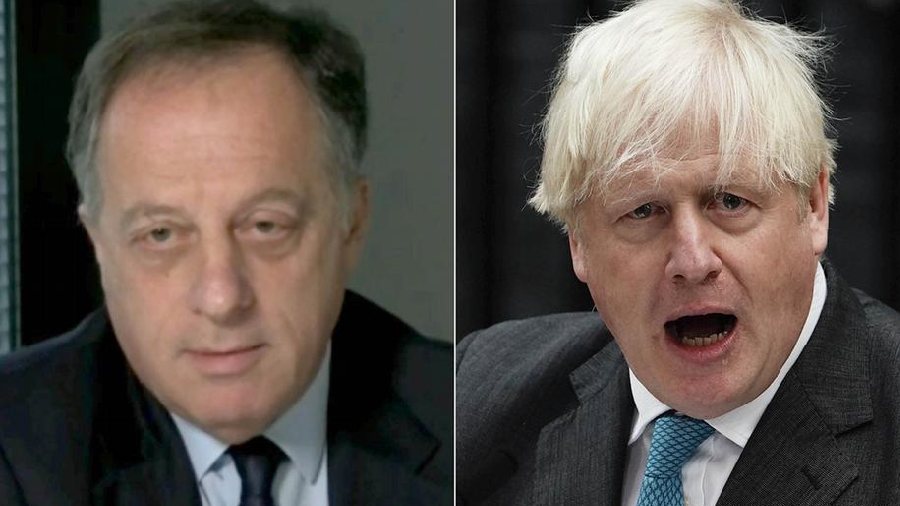The chairman of the BBC, Britain's main public broadcaster, faced pressure to resign on Sunday after he was found to have breached ethical standards over the Boris Johnson loan scandal.
A committee of UK lawmakers found that Richard Sharp had made "significant errors of judgment" by not revealing that he had acted as a go-between to help the former UK prime minister secure an 800,000 pound ($964,640, €902,000) loan.
Sharp was appointed to lead the BBC shortly after the loan was arranged.
The cross-party Digital, Culture, Media and Sport Committee said Sharp's actions "constitute a breach of the standards expected of individuals" applying for prominent public appointments.
"The public appointments process can only work effectively if everyone is open and transparent, yet Richard Sharp chose not to tell either the appointment panel or our committee about his involvement in the facilitation of a loan to Boris Johnson," said the committee's acting chair, Damian Green.
The chair of the BBC is appointed based on the recommendation of the government of the day.
Parliamentary committee kept in the dark
Green added that the lack of transparency meant "we were not in the full possession of the facts when we were required to rule on his suitability for the role of BBC chair."
Without formally calling for his resignation, the committee said Sharp should "consider the impact his omissions will have" on trust in the public broadcaster.
Sharp, a former Goldman Sachs banker, has admitted that he introduced Sam Blyth, an old friend who wanted to help Johnson, to a government official in late 2020. He said his involvement went no further.
Blyth, who is a distant cousin of Johnson, went on to make the loan to the former prime minister, UK media reported.
Sharp appeared before the committee on Tuesday and reiterated that he was not involved in making a loan or in arranging a guarantee or any financing.
He said after seeking an introduction for Blyth, he had agreed with a senior government official to have nothing more to do with the matter to avoid any conflict of interest.
"Mr. Sharp appreciates that there was information that the committee felt that it should have been made aware of in his pre-appointment hearing," a spokesperson for Sharp said. "He regrets this and apologizes."
Sharp also apologized again to the broadcaster's staff for the distraction caused to the BBC.
Opposition says Sharp's position 'untenable'
Lisa Nandy, a shadow minister from the opposition Labour Party said Sharp's position was "increasingly untenable."
"I think it's difficult to see how Richard Sharp could possibly stay in the position that he's in, given the far-reaching implications for the reputation of the BBC and the implications for trust in journalism," she told Sky News.
Andrew Mitchell, a minister from the ruling Conservative government said it was up to the broadcaster to decide Sharp's future.
"I think Damian Green is a very senior member of the House of Commons and what he and his committee says matters," Mitchell told the BBC.
"But I think, as I say, this is really something which the public appointments commissioner must look at and we must wait for his judgment. And above all, of course, it's a matter for the judgment of the BBC."
Britain's public appointments watchdog is also reviewing Sharp's appointment.
The chair is responsible for maintaining the independence of the BBC. He also appoints the director general and acts as the corporation's most senior representative to parliament and the government.
Sharp was named as the preferred candidate for the job in January 2021.










